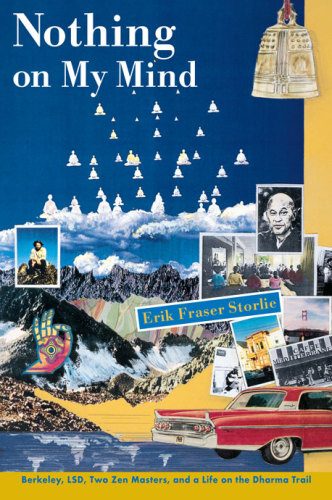
Nothing on My Mind
Berkeley, LSD, Two Zen Masters, and a Life on the Dharma Trail
کتاب های مرتبط
- اطلاعات
- نقد و بررسی
- دیدگاه کاربران
نقد و بررسی

November 18, 1996
Author Storlie begins this book of the inner mind seated in the full lotus position. He doesn't get much farther. Recounting a tale that is not quite fiction, not quite fact (he has combined characters and dredged up quotes from 30 years of memories, he tells us in the preface), he leads us through a life spent in the quest of knowledge and bliss-the pursuit of Zen. He starts in Minnesota, journeys out to San Francisco at the peak of Haight-Ashbury and studies under two Zen masters as the years progress, all in an effort to satisfy his thirsty soul. Yet this memoir reads like a Less Than Zero for hippie burnouts. Too much of it is devoted to acid trips, beery nights out in the Bay Area wilderness, a few dabblings with heroin. It dwells on mind games and pointless journeys in the forest, a Walden without a reason for being written. While Storlie says he seeks spiritual attainment, he never tells us why. Cheering him on as his 1960s hippie friends turn his life into an outtake from Trainspotting (complete with a visit while stoned to Timothy Leary), as he struggles to complete an academic degree, any academic degree, and as he marries and divorces, becomes difficult.

October 1, 1996
Storlie, now a professor of English, relays his struggles to obtain his education while being pulled to explore the consciousness-raising milieu of 1960s Berkeley. Fully half of the book is given to descriptions of experimentation with LSD on its own and LSD mixed with Zen meditation. Later, Storlie rejects psychedelics and describes his experiences studying with two Zen masters, Suzuki Roshi and Katagiri Roshi. The chapters of personal history alternate with chapters describing a single day, close to the present, during which Storlie sits in meditation and explores the wilderness of the Flute Reed Mountains. While heartfelt, these chapters become somewhat tedious. The descriptions of working with the two Zen masters and life in the respective communities will be of interest to American Zen practitioners, but for most collections there are other titles that offer more compelling reading, notably Lawrence Shainberg's Ambivalent Zen (LJ 12/95).--Mark Woodhouse, Elmira Coll. Lib., N.Y.

























دیدگاه کاربران